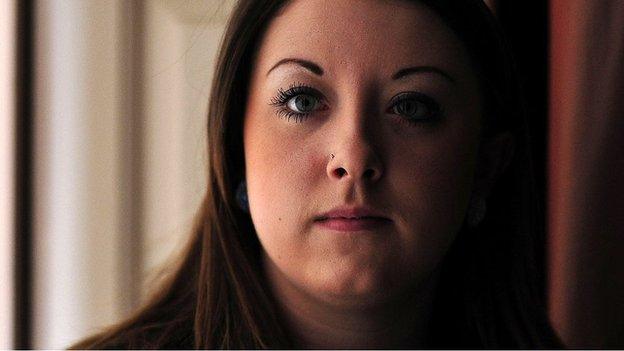What is it like to break the worst possible news?
- Published
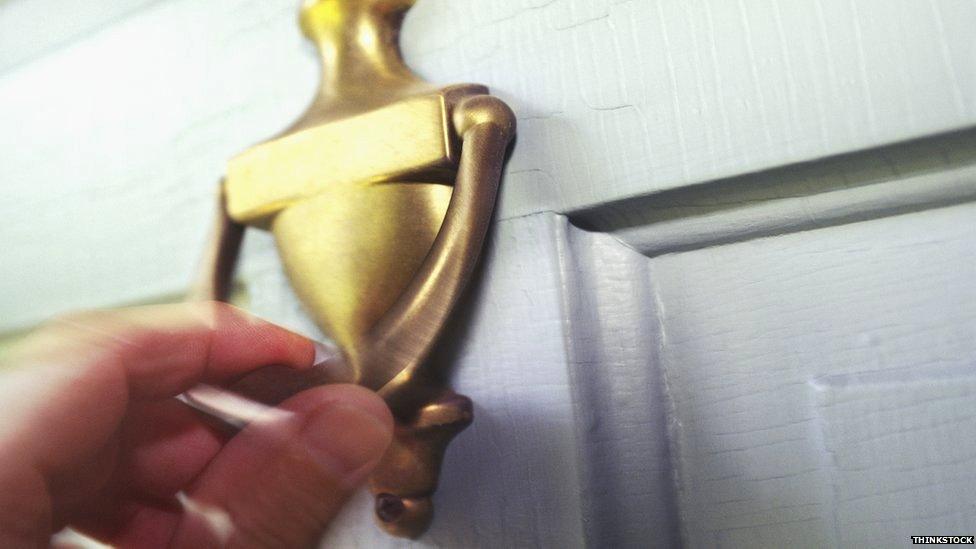
More than 8,000 people died last year as a result of accidents, killings and misadventure. Most families will learn of these deaths when they get a knock at the door
This year the lives of thousands of families across England will be shattered. They will learn a loved one has died. But what is it like to be the bearer of the worst possible news?
"I've been hit, I've been punched," says PC Sam Sparkes. "I've had people fall to the floor and I've had people simply scream at me.
"Sometimes they say 'sorry' afterwards - they have nothing to apologise for."
PC Sparkes is one of the scores of specialist officers across the country who tell people their loved ones are dead.
It's a process that goes like this.
"The first thing is to make sure I've got the right house. Then I make sure the person opening the door is the right person.
"I'll ask if there is anybody else in the house. Even at this stage, 98% of them already know why I am there.
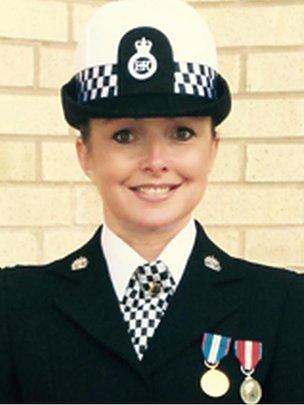
PC Sam Sparkes became a police family liaison officer after the death of her cousin Vanessa in a traffic accident
"I try to steer them into the living room because it is the most comfortable part of the house. Then you tell them.
"Of course I empathise, but I do not put my feelings on to the family - it would be unfair and unhelpful to them. And if I joined the grieving process, I would carry that home with me and I cannot do that."
While speaking to the BBC, PC Sparkes is called over the radio to a fatal accident in Dunstable. She double checks she has her police hat and tells control she is on her way.
Asked what is going through her mind she says: "I have to deal with it professionally.
"I always work on the basis that I have got nothing to do with the collision. I have not caused it and I could not have prevented it.
"But I know that when it comes to telling people what has happened I am going to change their lives forever.
"My job is to make sure they are always aware of what is happening and what information is in the files," she says. "I ensure there will be no surprises for them."
Sometimes this is easier said than done.
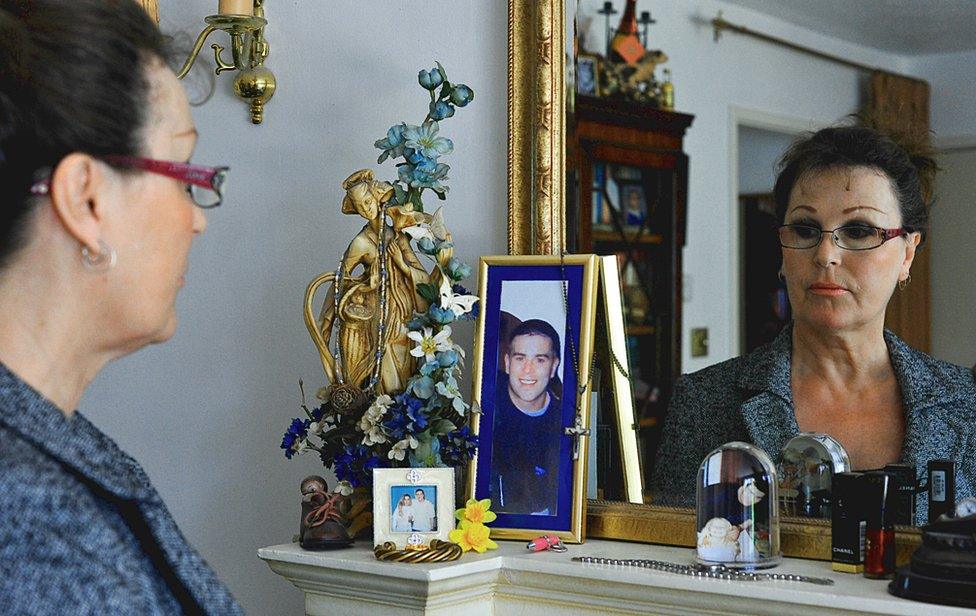
The police did not have time to break the news of her son's murder to Ann Oakes-Odger. She found out he was dead by overhearing a hospital worker in the background
One of the more unusual cases involved a bigamist killed in a car crash between the homes of his two wives.
Before he was killed he had resumed a relationship with his first wife, whom he had never divorced. His second wife was unaware of the first wife, or their new relationship. When he was killed she thought he was returning from work.
The truth of his bigamy and "affair", says PC Sparkes, was "never divulged" on the grounds it would have caused massive and unnecessary additional misery.
One of the hardest cases PC Sparkes has ever been involved with concerned three teenagers who died in a road traffic accident. The driver passed his test on a Thursday evening, picked up his car at 09:00 the next morning, went to pick up his two friends. By 13:45, all three of them were dead.

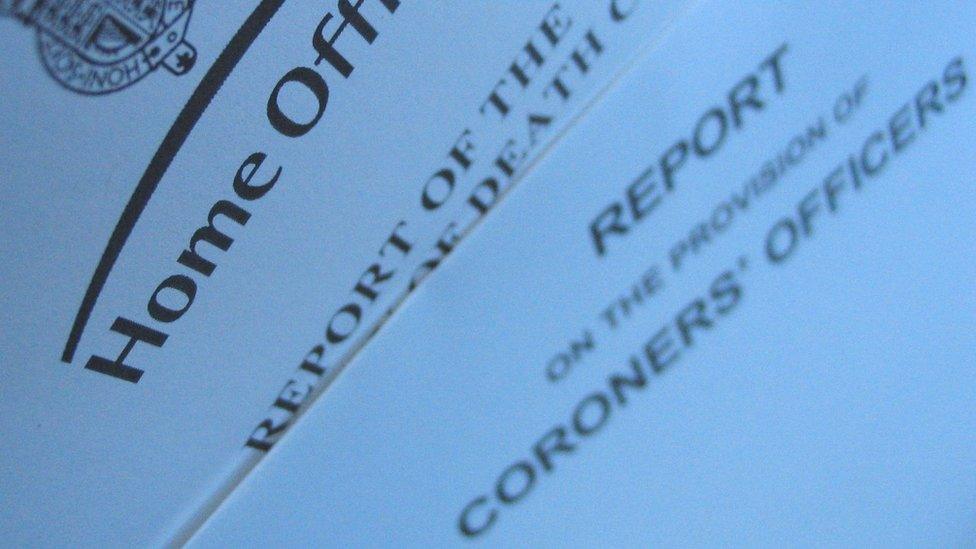
Deaths
223,841 deaths were reported to the coroners of England and Wales in 2014
There were 25,889 inquests opened
7,941 people were found to have died of an accident or misadventure
There were 3,851 suicides
Unclassified deaths - which include lawful and unlawful killings, disasters and stillbirths - accounted for 5,261 deaths
Source: Coroners Statistics, external

Her first bereavement call involved a 10-year-old child.
"If I could break the news to a family losing a child then, being a mum myself, I knew I could deal with anything."
PC Sparkes, who trained as a dancer, says she became a traffic officer and later a family liaison officer following the death of her cousin Vanessa on the A14 in 1994.
"That's why I do what I do," she says. "I just know that I want to treat people as I would like to be treated.
"I am completely passionate about this job. If I can make the most horrendous journey any easier for the families affected then I will."
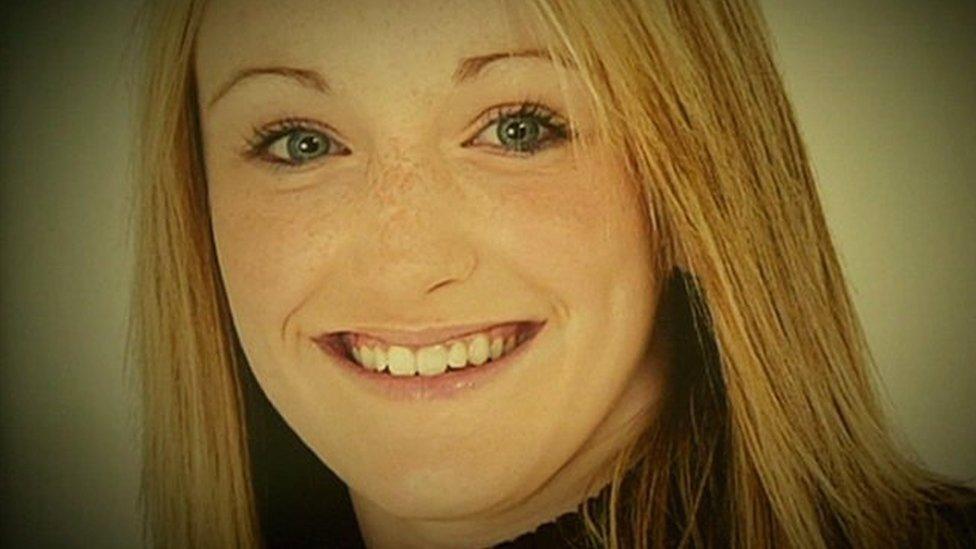
Olivia Bazlinton was killed, along with her friend Charlotte Thompson, at a level crossing in 2005
Tina Hughes's 14-year-old daughter Olivia Bazlinton was killed, along with her friend Charlotte Thompson, on a level crossing at Elsenham in 2005.
Ms Hughes was told of the accident by her elder daughter and went straight to the village railway station.
It was there - in a tent set up by the police - that a police officer broke the news her daughter was dead.
Moments later, she learned Olivia was not only carrying her own identification but that of her older sister too - so that she could purchase cigarettes.
"We started laughing," said Ms Hughes, who said the discovery of the swiped ID card was an encapsulation of her daughter's cheekiness.
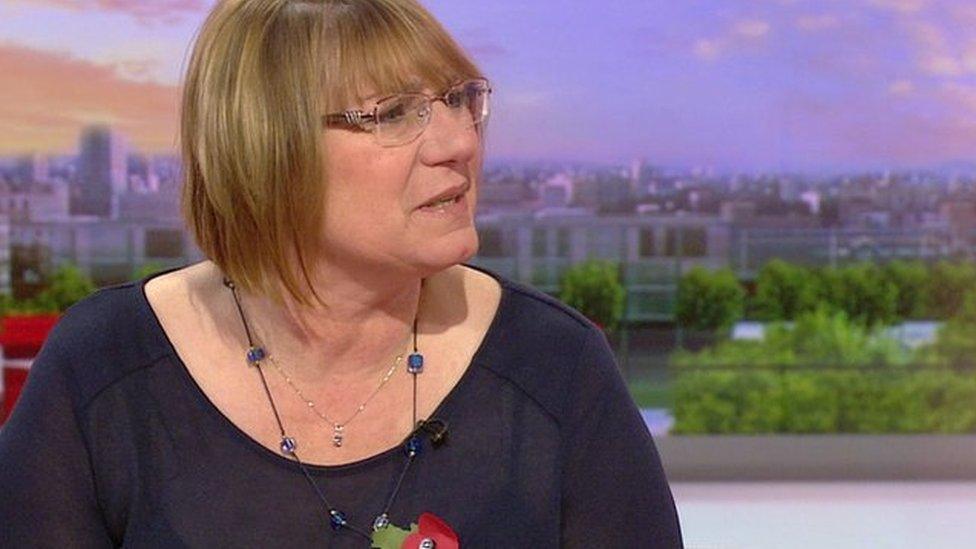
Tina Hughes was told of her daughter's death in a make-shift police tent 10 years ago
The reality of Olivia's death took about six weeks to hit, says Ms Hughes. "I just did not know how I would cope if I went into that black hole of grief so I just coped as well as I could."
The support from the British Transport Police family liaison officer was invaluable, said Ms Hughes.
But what happens when it goes wrong?
"How people are informed can have a lasting effect," says Ann Oakes-Odger, whose son Westley was fatally stabbed in the neck outside a cash machine in Colchester in 2005.
Ms Oakes-Odger received a hysterical phone call from a friend of Westley's saying her son had been seriously injured.
She called the hospital where she heard staff in the background saying "oh, yes, he's dead".
The police had not had the time to formally notify Ms Oakes-Odger.
"It was the worst possible way to hear and it has had a terrible impact on our family."
- Published17 October 2013
